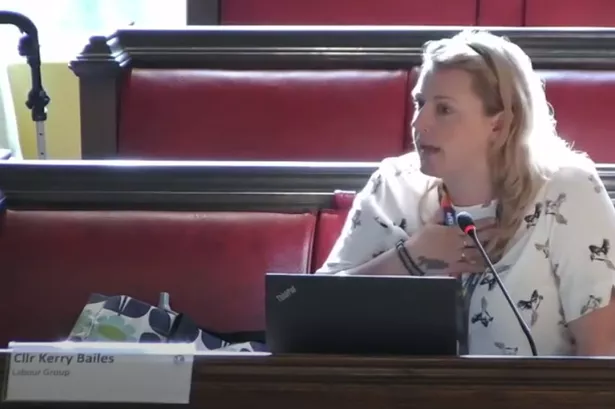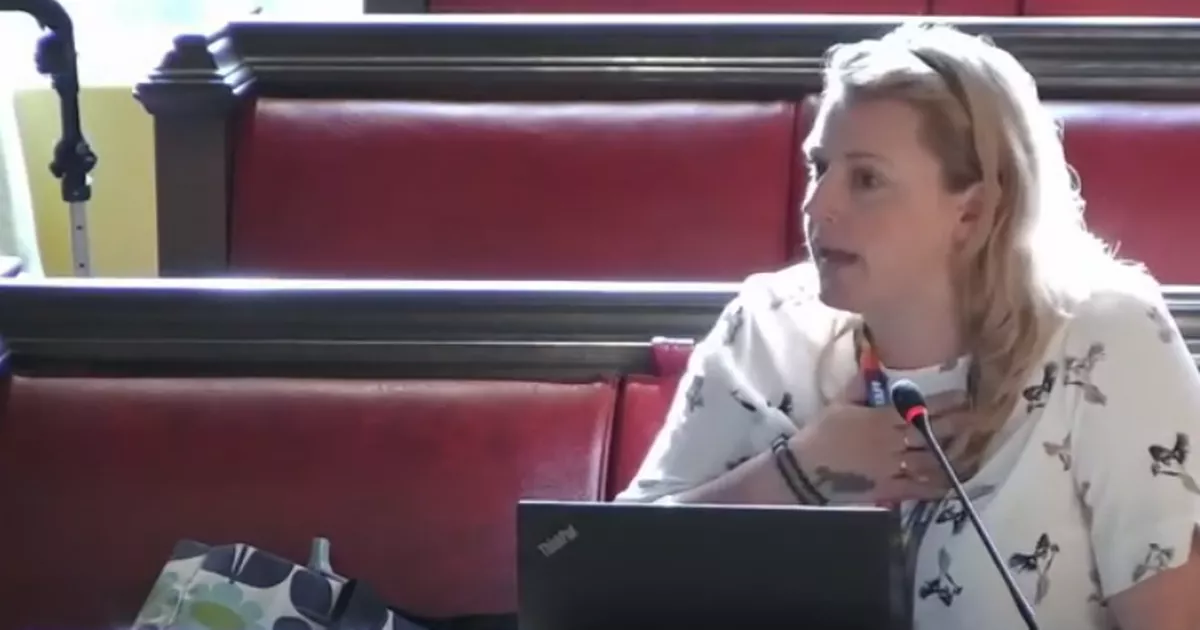Meanwhile a new “transformation director” will be hired on £130,000 a year Labour Councillor Kerry Bailes called for higher pay(Image: Bristol City Council Live / YouTube)
Labour Councillor Kerry Bailes called for higher pay(Image: Bristol City Council Live / YouTube)
Councillors have criticised the low pay offered to staff in a “lifeline” service giving a voice to vulnerable children in care. Advocates make sure that the wishes and feelings of a child are heard when the council decides about their care.
They also support children in care to make complaints, and councils have a duty to appoint both advocates and independent visitors. Demand for these services is rising, as well as the number of children in care.
Training for advocates includes becoming an expert on the law around care and the legal rights of children, while also talking to vulnerable young people in an approachable way. Councillors voted to recommission Bristol City Council ’s contract for advocacy during a meeting of the children and young people policy committee on Thursday, May 8, but raised concerns over pay.
Labour Councillor Kerry Bailes said: “I’m concerned about the pay for this role. You have to have a particular set of skills to do this job and not everybody can do it. You have to be legally minded and it’s a very niche kind of job. Kids in care really need an advocate and I think we should pay them more.”
Advocates working for Reconstruct, an organisation which currently holds the contract in Bristol, are paid £14 an hour, according to their website, equivalent to £27,000 a year if working full time. This rises to £14.42 per hour, after a year’s service. This is just above the minimum wage of £12.21 per hour.
Labour Cllr Katja Hornchen, vice-chair of the committee, added: “Children in care often don’t have someone fighting on their side. Parents really fight for their children, and learn the legal terms, but children in care don’t necessarily have that.
“This contract value per year is very low and the legal fees for an advocate in the country at the moment are between £24,000 and £27,000 a year, which is way too low. Many years ago charity workers would earn a little bit less than council workers, but now that gap is yawningly big.
“For a little bit more money, we could at least guarantee that our charity workers who we commission are getting decent salaries. We seem to be OK with people getting very high salaries at the top end, but we seem to be failing those at the bottom.”
Sign up to receive daily news updates and breaking news alerts straight to your inbox for free here.
The council will spend just £148,800 per year on advocacy and independent visitor services. According to one council boss, most of the advocates in Bristol are either already in the legal profession or studying law. Advocating for children in care is then work they take on additionally. Nonetheless, the service was described by councillors as a “real lifeline” for children in care.
Gail Rogers, head of service for children and commissioning, said: “We know this is a really valued service. It makes a huge difference for some children who are particularly having a difficult time, and are able to talk to somebody else who isn’t part of their care arrangements about how they’re feeling.
“There’s specialist quasi-legal training for advocates. They’re receiving a rate that’s nationally approved and that would go up with inflation. I absolutely hear that about needing to pay people a decent wage to do what they’re doing. All I can say is that this is paid at a national average, and that we’re not struggling to find advocates.”
The committee voted five to two in favour of recommissioning the contract for a further five years, with the two Labour councillors voted against. In the same meeting, councillors approved plans to hire a “transformation director” on a salary of £130,000 and spent £6 million this year on a “transformation delivery partner”, in a bid to cut the costs of children in care.
One of the largest challenges facing the council’s budget is the ballooning cost of caring for children. Councils are legally obliged to pay for care for some children, and the fees charged by care companies have risen sharply in recent years, as well as the number of children needing care. This problem is affecting many councils across the country, not just in Bristol.
Council bosses are now trying to prevent children needing to go into care, by providing targeted support at an earlier stage. This would stop family breakdowns, with better outcomes for both the children and the council’s budget. But knowing where to provide that early support is tricky, so a lot of taxpayer’s money will be spent on “digging into the data”, to help cut the cost of care.
Green Cllr Shona Jemphrey said: “This transformation director post, that’s going to be £130,000 on one person’s salary. That feels like a lot of money.”
Meanwhile, the “transformation delivery partner” will be paid £6 million this year and £1.5 million next year. This will be an external consultancy company, which has worked in other cities to help councils reduce the cost of care. It’s hoped council staff will be able to learn from their expertise.
Fiona Tudge, director of children and families, said: “So in terms of preventing children from coming into care, we had a team whose role that was to do, and they had good outcomes. And yet our data was still showing us that we had high numbers of adolescents coming into care.
“A strategic partner comes in and really digs into that for us — how can we make sure that we’re working with the right children at risk of coming into care, rather than children we think are at risk of coming into care but that we haven’t actually got quite right so far. They will be able to support and dig into that, so that we’re targeting the right children.”
